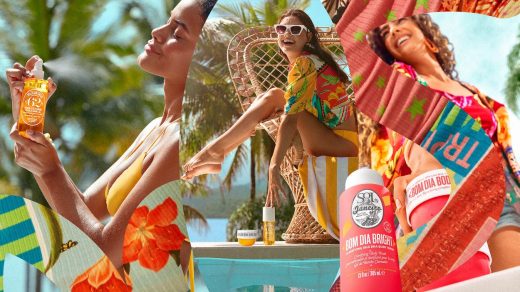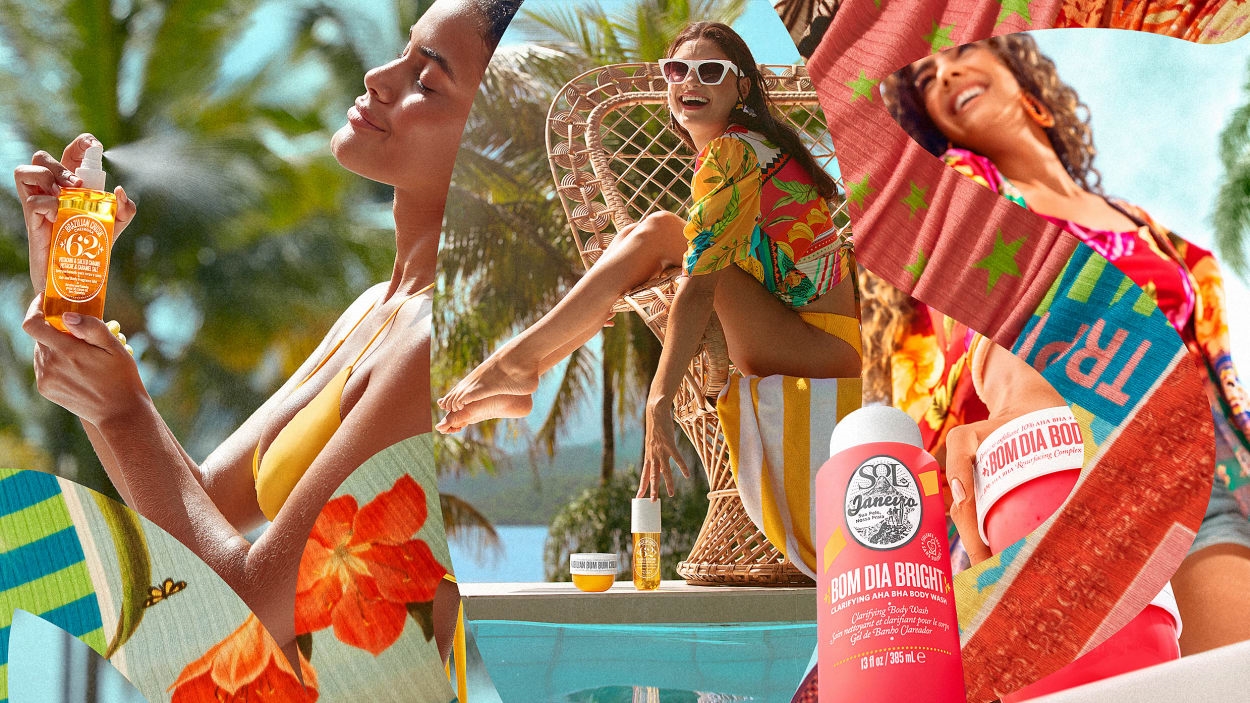Sol de Janeiro’s candy-sweet scents are what summer 2023 smells like
By Heidi Mitchell
If you live with a teenage girl, or have simply sauntered past a Sephora window, you’ve likely come across a sunset-hued bottle of fragrance that screams, “It’s summer.” Unless, that is, the product has sold out, which it often does. The brand behind the phenomenon is Sol de Janeiro, a Portuguese name that translates to “Sun of January,” and, if endless online reviews and interviews are to be believed, transports any wearer to a tropical vacation, if only in their minds. It also smells like dessert.
Sol de Janeiro was founded in 2015 and rapidly became famous for its Brazilian Bum Bum Cream, a firming body cream that the company says it still sells a tub of every 14 seconds.
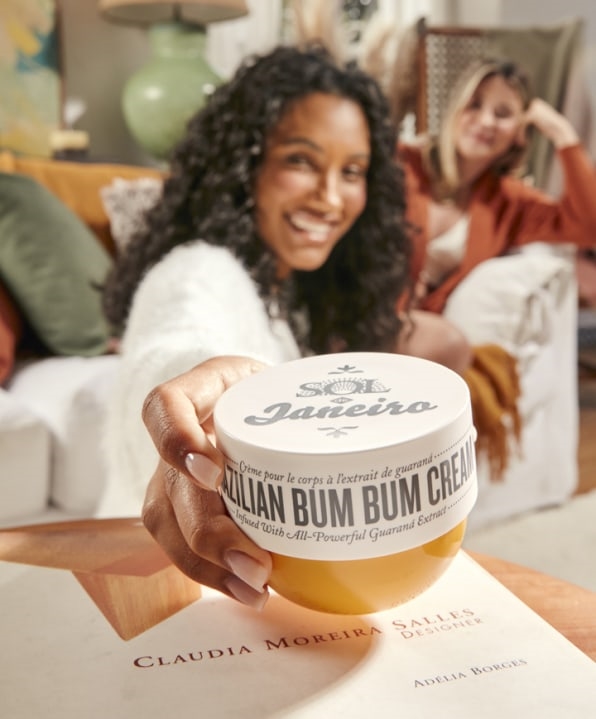
But the brand turned into a bona fide olfactory sensation last June, when its Summer Mist Trio ($60)—including three 90ml sprays in scents called Tan Lines, Sea and Sol, and Tropical Nights—sold out instantly, and collecting the fragrances became something of a sport. For the fiscal year ending on March 31, L’Occitane, which acquired the brand in late 2021, reported that Sol de Janeiro had done about $281 million in sales, including a 267% spike in the fourth quarter, putting Sol de Janeiro’s valuation at $450 million.
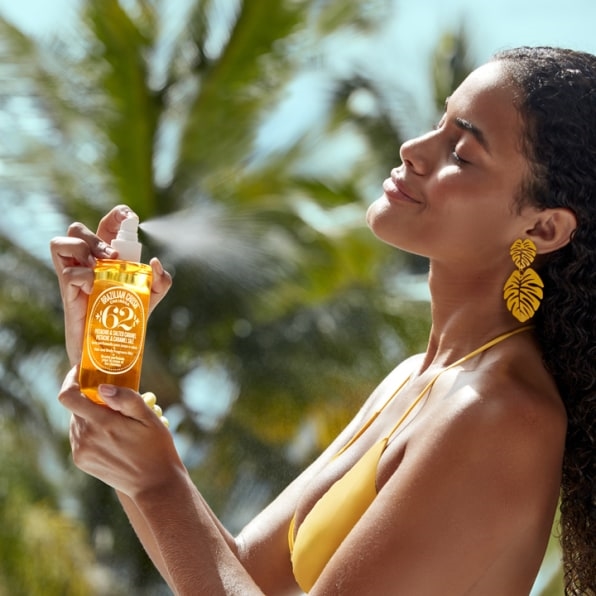
Last month’s follow-up collection, the Summer Mood Mist trio—including When in Rio, Do Not Disturb, and Bikini Season—has been even more successful. (At the time of writing, each fragrance, sold individually for $24, was almost sold out.) The frenzy has been driven by organic plugs on social media and strategic deliveries to big-time beauty influencers such as Kathleen Fuentes (2.1 million Instagram followers) and Erika Priscilla (1.2 million TikTok followers), plus securing actress Barbie Ferreira as the face of the company’s entire perfume mist category. Today, TikTok videos with the hashtag #SoldeJaneiro have been viewed 609.3 million times.
Not bad for a little side project by a former beauty executive.
Heela Yang had spent three years as a director of marketing at Clinique and two as a manager at Lancôme when she relocated to Rio de Janeiro for her Japanese-Brazilian husband’s job in 2014. She soon learned that she was pregnant and decided not to accept the high-travel position she had lined up. Instead, she spent a lot of time at the beach.
“I’d look around and see women of all shapes and sizes and color in tiny bikinis having the time of their life,” she recalls. “They were putting cream in their hair. Instead of shaving it off, they bleached their thigh hair so it shimmered, which also conceals stretch marks. They played with their bodies and seemed to completely accept themselves and each other for who they were at that moment.” The New York-by-way-of-Korea transplant decided that the beauty industry’s mission should be to empower women to feel more confident.
Yang spent six months conceptualizing a beauty brand that she felt would “spark endless self-celebration and joy through the power and the warmth of the Brazilian spirit” and in April 2015 launched a first line of products, including the cheekily named Brazilian Bum Bum Cream (pronounced “boom-boom), that was loaded with caffeine-heavy guarana, immune-boosting Brazil nut, smoothing acai and coconut butter, and elasticity-promoting cupuacu butter. “We all want smooth bottoms, so why not expand that to the body?” Yang asked at the time. She hired a web developer in Brooklyn for $3,000, met with PR agencies—some who offered to take on Sol de Janeiro for free—and landed a meeting with Sephora, which sent her a contract within days. Brazilian Bum Bum Cream became the beauty behemoth’s top-selling skincare cream within four months. It is currently Sephora’s No. 1 skincare SKU.
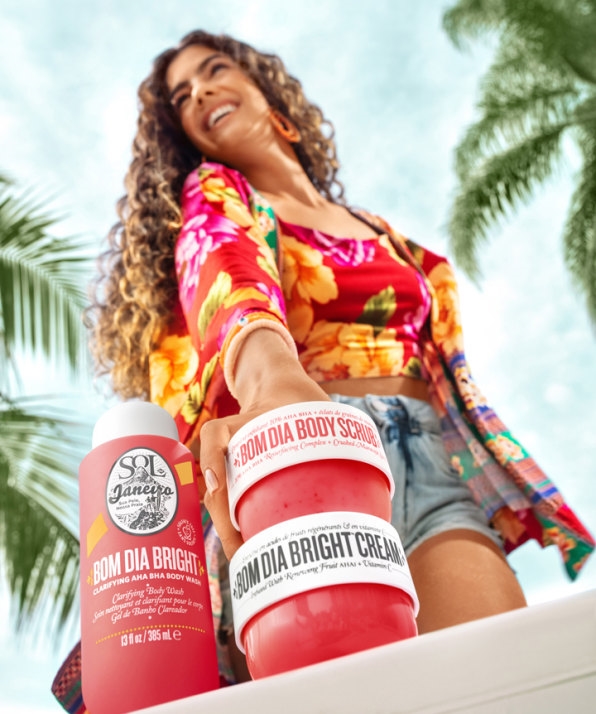
But it wasn’t the luxuriousness of the body balm that got TikTok chiming. It was its smell.
Early on, Yang says, she and her cofounders kept hearing that the vanilla, caramel, and pistachio scent “was way too sweet and strong, and that we’d be forcing people to choose between a body cream and their perfume. And being sweet has always been considered ‘too mass’ for a premium buyer in her mid-30s.” Not true for this crowd: Fragrance influencers were buying the cream and lauding its sugary scent. Sol de Janeiro responded in 2017 by launching five lightweight fragrance mists that only contain 5% or less of the essential fragrance oil (compared to eau de parfums, which have 15%, or eau de toilettes, which have 10%), making them breezy and affordable at just $38 for an 8oz. bottle.
Yang wanted her scents—each named for an important year in Brazilian culture (Cheirosa 62, the Brazilian Bum Bum Cream scent, honors the year The Girl from Ipanema was released)—to waft far and wide. “The Brazilian way is to spray a mist on their curtains, their bedsheets. When I go to hotels, I spritz the drawers before I put my clothes in. That’s how we came up with this format, instead of an expensive perfume,” says Yang. “It was a fantastic way to reach younger consumers who don’t need a body cream.”
And yet she isn’t surprised that granddaughters are buying the sun-soaked scents for their grandmothers and moms, because that’s what everyone in her adopted country does. “When we look at our customer profile, it is multi-generation. And that is very Brazilian,” says Yang. Mothers buying Tropical Nights for their mothers, granddaughters buying Do No Disturb for their grandmothers . . . it’s why everyone right now is smelling like beach party.
(21)

